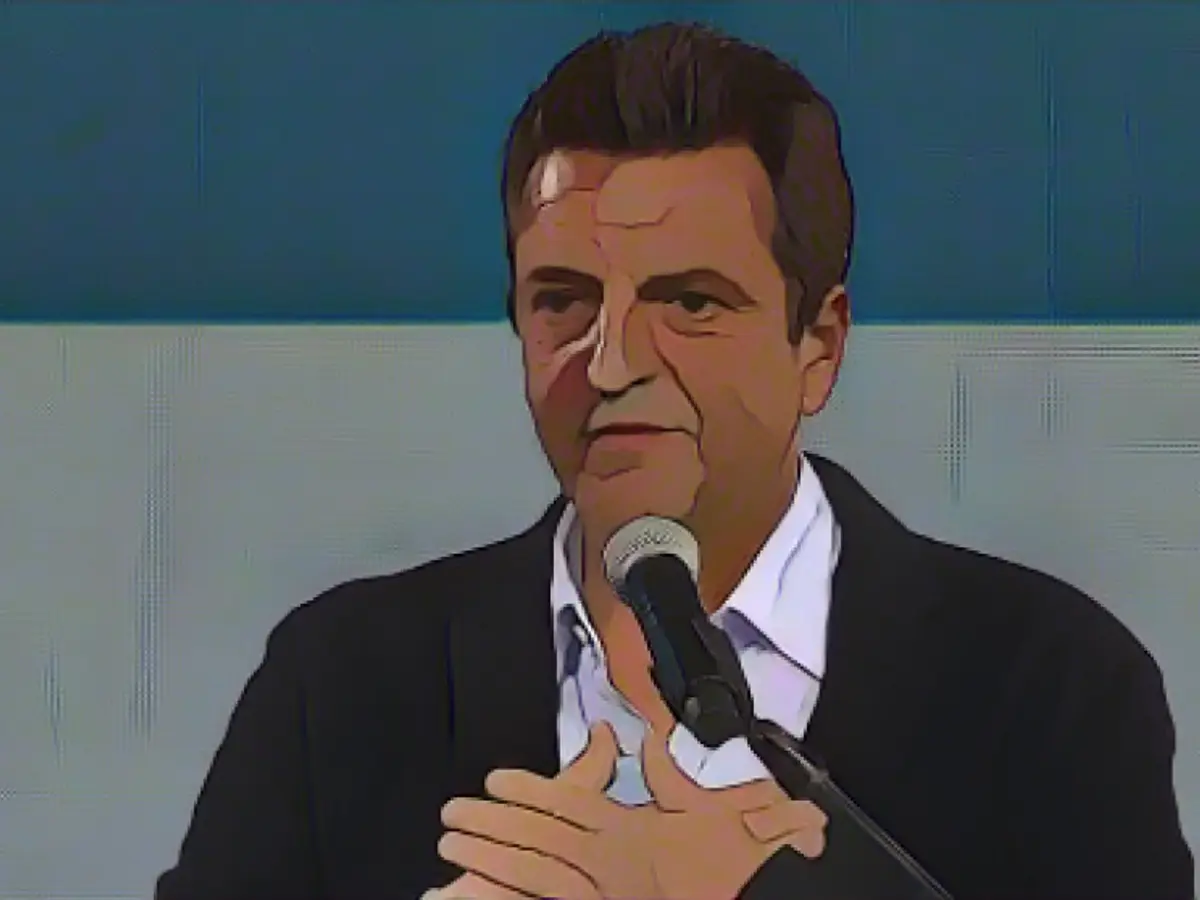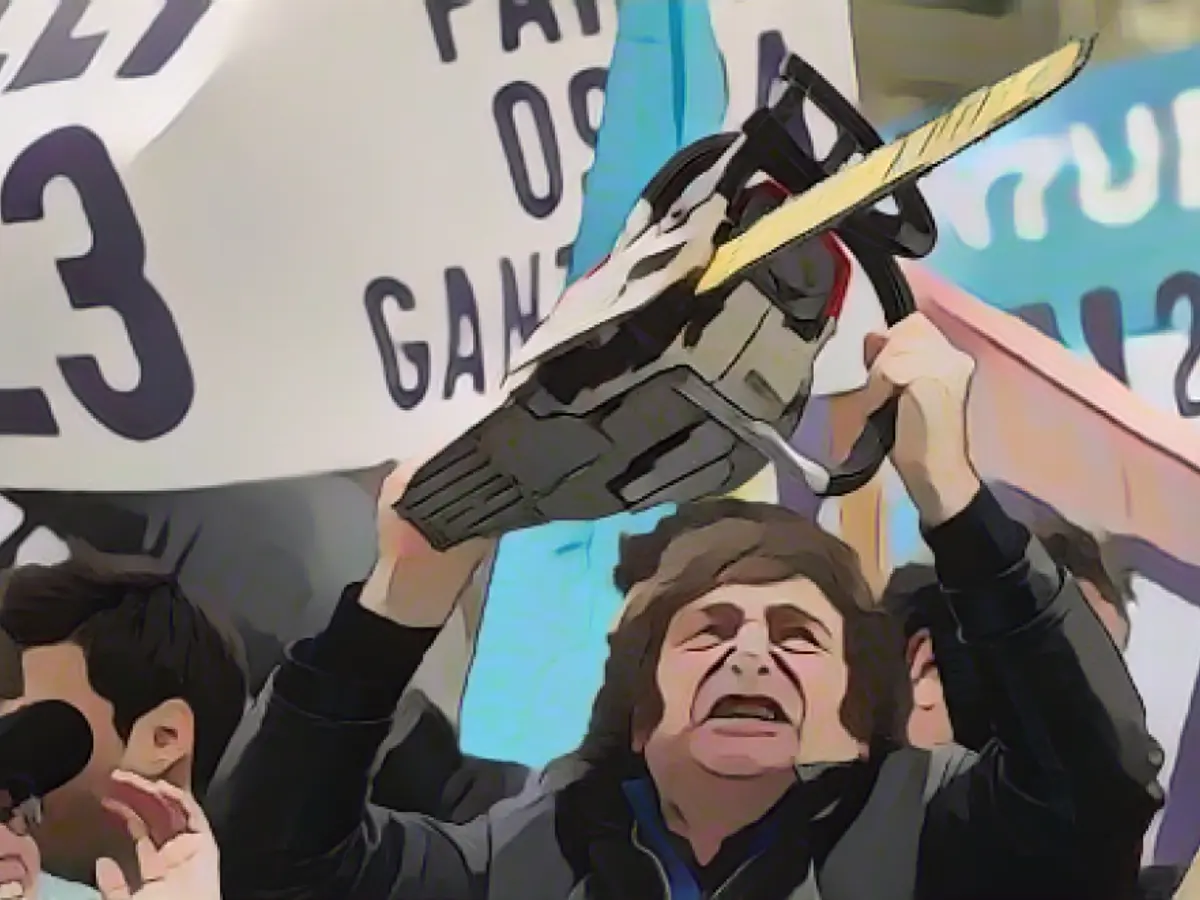New Argentinian President: Javier Milei Wins in Landslide
Right-wing populist Javier Milei, a political outsider, clinched Argentina's presidency in a landslide victory. With 55.76% of the votes, he outperformed left-wing Economy Minister Sergio Massa by an impressive 11.53 percentage points, according to Argentina's electoral office, following a close run-off election with 97% of votes counted on Sunday night (local time).

Milei, 53, accepted the victory in a speech to his supporters in Buenos Aires, acknowledging Massa's supporters by saying, "I congratulate all Argentines who chose me."
Milei's Dichotomous Campaign
Milei's campaign was marked by controversial views and radical rhetoric, including staunch opposition to government intervention, backing for privatization, and calls for economic liberalization. His controversial stance on issues like firearms and organ trafficking did not deter the Argentine electorate, instead, Milei gained popularity due to his populist appeal.
Milei's unconventional campaign style, coupled with his disdain for the political "caste" and an eccentric living situation with a pack of giant cloned mastiffs, captured public imagination, elevating him from political obscurity to Argentina's next leader.

Sergio Massa's Challenging Campaign
Despite entering the race as the front-runner following the first round of voting, Sergio Massa saw his seven-point lead evaporate. His platform of extensive social programs and governmental intervention in the economy fell out of favor with Argentina's electorate.
Massa, 51, contested the election again despite his earlier unsuccessful campaign in 2015.
Close to 36 million Argentinians participated in the run-off election, casting their ballots amidst Argentina's deep, prolonged economic crisis with persistently high inflation (over 140%), persistent poverty (affecting around 40% of residents), government overspending, and an ominously expanding public debt.**
Milei's Controversial Policies: Implications and Concerns
Milei's policies, stemming from his anarcho-capitalistic ideology, have triggered concern from international observers. Facts to consider include:
- Challenges to established norms:
- Deregulation and Market Liberalization: Milei's marginalization of governmental intervention may spur foreign investment, but it could also lead to increased income disparities and social unrest, as well as weakening social programs.
- Dollarization: Adopting the US dollar as Argentina's national currency aims for inflation control but risks compromising monetary policy control and economic vulnerabilities to external shocks.
- Social unrest and economic inequality:
- Privatization and Deregulation: Tightening governmental control over state-run enterprises could bolster efficiency but possibly exacerbate unemployment and diminish public services.
- Tax Policies: No tax increases may boost business confidence but inevitably impact public finances, potentially affecting public services and social programs.
The actual implementation, execution, and public reception of Milei's policies are crucial determinants of their success or failure.
Sources:
Enrichment Data:
Milei's anarcho-capitalistic presidency in Argentina could yield potential economic, social, and political ramifications. While it may spur economic growth via foreign investment, it also could lead to concerns such as increased income disparities, social unrest, and potential conflicts with international human rights standards. The successful execution of these policies will depend on public acceptance and adept implementation.







